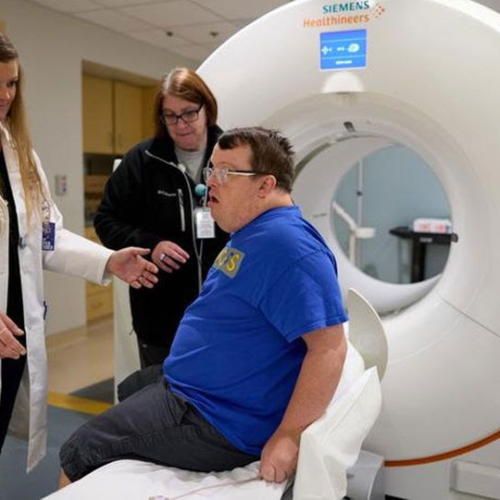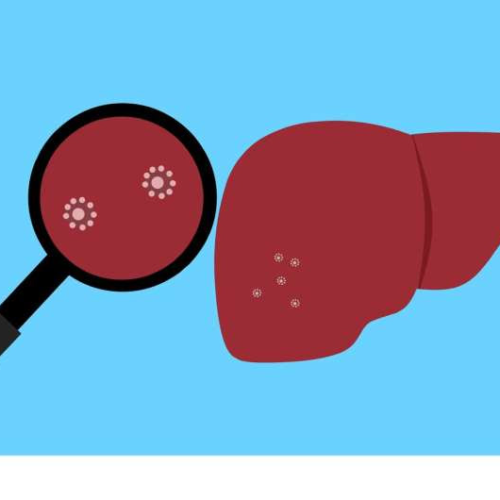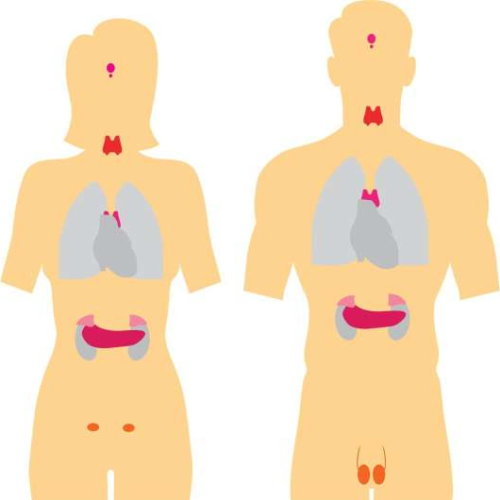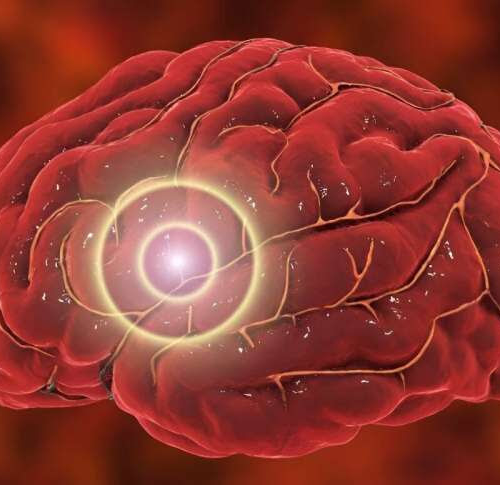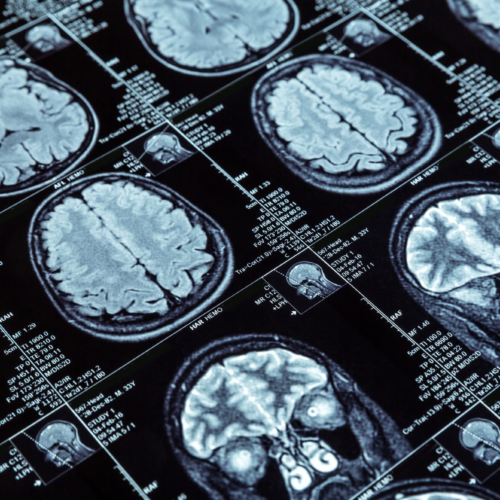A new study revealed that Alzheimer’s disease starts earlier and progresses faster in people with Down syndrome.Original story from Washington University School of Medicine in St Louis A scientist in a white lab coat helps a person with Down syndrome into a brain scan machine.Washington University senior clinical research coordinator Brittany Nelson (front) helps study...
Category: <span>Prognostic</span>
Simple blood test could predict risk of long-term COVID-19 lung problems
UNIVERSITY OF VIRGINIA HEALTH SYSTEM “THIS OFFERS HOPE THAT EVEN PATIENTS WITH THE WORST COVID DO NOT HAVE PROGRESSIVE SCARRING OF THE LUNG THAT LEADS TO DEATH,”SAID RESEARCHER Catherine A. Bonham, MD, A PULMONARY AND CRITICAL CARE EXPERT WHO SERVES AS SCIENTIFIC DIRECTOR OF UVA HEALTH’S INTERSTITIAL LUNG DISEASE PROGRAM. view moreCREDIT: UVA HEALTH UVA...
Research team uses AI to predict risk of liver cancer
by UC Davis Credit: Pixabay/CC0 Public DomainA team of UC Davis Health clinicians and data scientists has developed a machine-learning model to better predict which patients are at greater risk of developing a common type of liver cancer, hepatocellular carcinoma (HCC). The findings of their research—published in the journal Gastro Hep Advances—describe how predictive-learning can aid...
Understanding genetic risk could save sight and predict multiple sclerosis earlier in young people
by University of Exeter Credit: CC0 Public DomainYoung people could be spared from going blind by a new genetic risk tool that could also help diagnose multiple sclerosis (MS) earlier, to start effective treatments. Optic neuritis is a condition that affects people of all ages, but especially young adults, usually manifesting in blurred vision and sometimes...
AI finds key signs that predict patient survival across dementia types
by The Mount Sinai Hospital Survival Analysis Based On Dementia Subtypes. Credit: Zhang & Song et al., Communications MedicineResearchers at the Icahn School of Medicine at Mount Sinai and others have harnessed the power of machine learning to identify key predictors of mortality in dementia patients. The study, published in the February 28 online issue of...
Determine stroke risk at an early stage using tear fluid, mitochondria and AI-based data
Experts present holistic predictive approach for preventive and individualized treatmentPeer-Reviewed Publication UNIVERSITATSKLINIKUM BONN PROF. DR. OLGA GOLUBNITSCHAJA, HEAD OF THE RESEARCH GROUP FOR 3P (PREDICTIVE, PREVENTIVE AND PERSONALIZED) MEDICINE AT THE UNIVERSITY HOSPITAL BONN (UKB)CREDIT: UNIVERSITY HOSPITAL BONN (UKB)/R. MÜLLER Every year, over 100 million people worldwide suffer a stroke. Ischemic strokes (cerebral infarction) are...
Remission of Cushing’s disease associated with higher risk of developing autoimmune disease
by American College of Physicians Credit: Pixabay/CC0 Public DomainA study of more than 250 persons undergoing surgical therapy for Cushing’s disease (CD) or nonfunctioning pituitary adenomas (NFPAs) found that patients who achieved remission of CD were more likely than those with surgically treated NFPAs to develop new-onset autoimmune disease within three years after remission. The study...
Genetic risk prediction for ten chronic diseases moves closer to the clinic
by Broad Institute of MIT and Harvard Credit: CC0 Public DomainBy analyzing millions of small genetic differences across a person’s genome, researchers can calculate a polygenic risk score to estimate someone’s lifetime odds of developing a certain disease. Over the past decade, scientists have developed these risk scores for dozens of diseases, including heart disease, kidney...
Research finds brain cancer risk increase after moderate/severe, penetrating TBI
by Elana Gotkine Moderate/severe and penetrating traumatic brain injury (TBI) are associated with an increased risk for subsequent development of brain cancer, according to a study published online Feb. 15 in JAMA Network Open. Ian J. Stewart, M.D., from the Uniformed Services University of Health Sciences in Bethesda, Maryland, and colleagues conducted a retrospective cohort...
New machine learning model uses MRI scans to predict psychosis onset
Reviewed by Lily Ramsey, LLMIn a recent study published in Molecular Psychiatry, researchers performed structural-type magnetic resonance imaging (sMRI) to develop a machine learning classifier and distinguish neuroanatomical patterns between healthy controls (HCs) and those developing a psychotic disease (CHR-PS+). Study: Using brain structural neuroimaging measures to predict psychosis onset for individuals at clinical high-risk....

